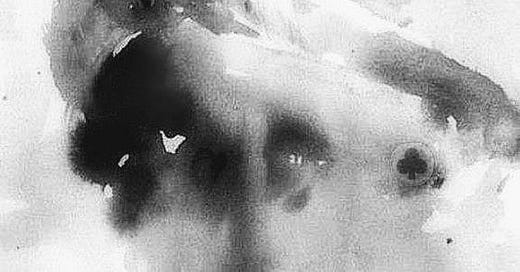“Fasting from any nourishment, activity, involvement or pursuit—for any season—sets the stage for God to appear. Fasting is not a tool to pry wisdom out of God's hands or to force needed insight about a decision. Fasting is not a tool for gaining discipline or developing piety (whatever that might be). Instead, fasting is the bulimic act of ridding ourselves of our fullness to attune our senses to the mysteries that swirl in and around us." —Dan B. Allender, PhD
For me, fasting is one of the quickest ways to God…it is an obliterating spiritual practice. A practice that works swiftly, and absolutely, and it is impeccably honest.
If you look into the history of fasting you will find that the first humans “fasted” in a sense because of what was available to eat at the time. The first faith-based fasting began in the Hindu and Buddhist traditions well before we see it in the Bible, and then other holy books like the Quran and Torah. The truth is, fasting has been a spiritual practice for people of all faiths since the beginning of time.
“Fasting is a separation from many things in order to give deliberate and total attention to prayer.”― Benjamin Suulola
And, in relatively modern times, fasting has also become a healthy practice. There is now science and research connecting the benefits of (intermittent) fasting with our basic biology and even disease.
I was first introduced to intermittent fasting when I witnessed my sister’s healing journey with cancer, and what began as vicarious trauma for me became a long-standing practice of daily fasting for many, many years.
“Therapeutic fasting goes back thousands of years, of course, and was long regarded by doctors as being more appropriate for philosophers than physicians. Researchers, however, have investigated what occurs when the body takes a short break from nutrients. They have studied the biochemical events that occur in the bloodstream, in the joints, in the fat tissues, and in the brain, and have found astonishing results.”― Dr. Joel Fuhrman
In the abstaining I was doing in support of her, I found myself emptying in more ways than one. There was indeed a part of me, the martyr, that was pleased with the suffering I was doing in devotion to her. I grew to love the light feeling, the hunger pains, the ache of emptiness…and in this place, at the very bottom of it, I found a deeper place within me, of devotion.
It is here where I touched this place that I feel sure is holy, and it is this place that I commit to returning to over and over and over again, and why fasting has become a regular spiritual practice for me.
“And when you fast, do not look gloomy like the hypocrites, for they disfigure their faces that their fasting may be seen by others. Truly, I say to you, they have received their reward. But when you fast, anoint your head and wash your face, that your fasting may not be seen by others but by your Father who is in secret. And your Father who sees in secret will reward you.” - Matthew 6:16-18
But it was actually well before this, during my yoga teacher training and big remembering that I am a Bhakti, that I learned the power of fasting in devotion - this was ten years ago in San Francisco with Rusty Wells. During our ten-day intensive in the studio we were not allowed to bring any meat into the studio, before this I was a meat-eater and this was the first time I even considered not eating meat.
I gave up meat and became a vegetarian during this ten-day training; it was difficult but it was an act of devotion, an act of faith, and it became part of my spiritual identity.
Fasting in this way was devotion, too.
“In the Mahāyāna Mahāparinirvāṇa Sūtra, which presents itself as the final elucidatory and definitive Mahayana teachings of the Buddha on the very eve of his death, the Buddha states that "the eating of meat extinguishes the seed of Great Kindness", adding that all and every kind of meat and fish consumption (even of animals found already dead) is prohibited by him.”
Today is day eighteen of my most recent “fast.” Each year during Ramadan I place my intention with the utmost care on fasting for the thirty days of this holy month. In the Islamic faith the fasting is done during the daylight hours, from sunrise to sunset, and it is a full fast from water and food. Because I sit with many dear Muslim sisters in the circles with my work, and offer my heart with extra hours of private mentorship during this month, my attention and love is with them - this makes this month very special for me.
This year Ramadan and Easter are in the same month - it feels extra sacred.
The offering of my Ramadan fast has been working me for the last three weeks. I have given up many things as an offering of my devotion, and I’m feeling the lightness and also the closeness in extra ways. When I feel the hunger, I think of Gaza and all people who are without in this moment.
“May I, through the work on myself, become an instrument for the relief of suffering of all beings.” - Ram Dass





